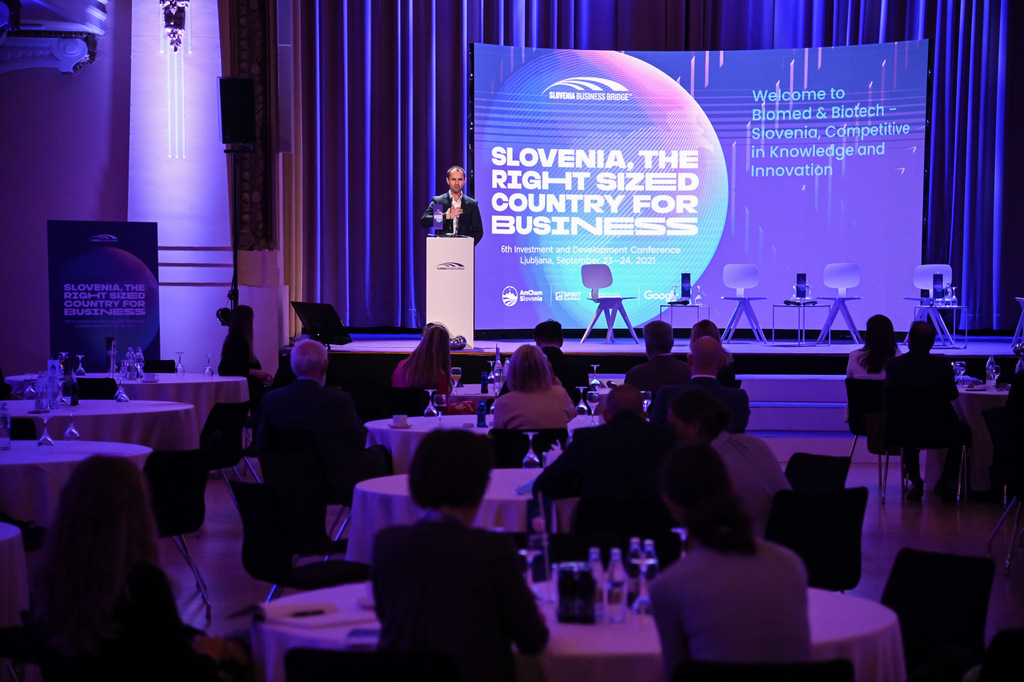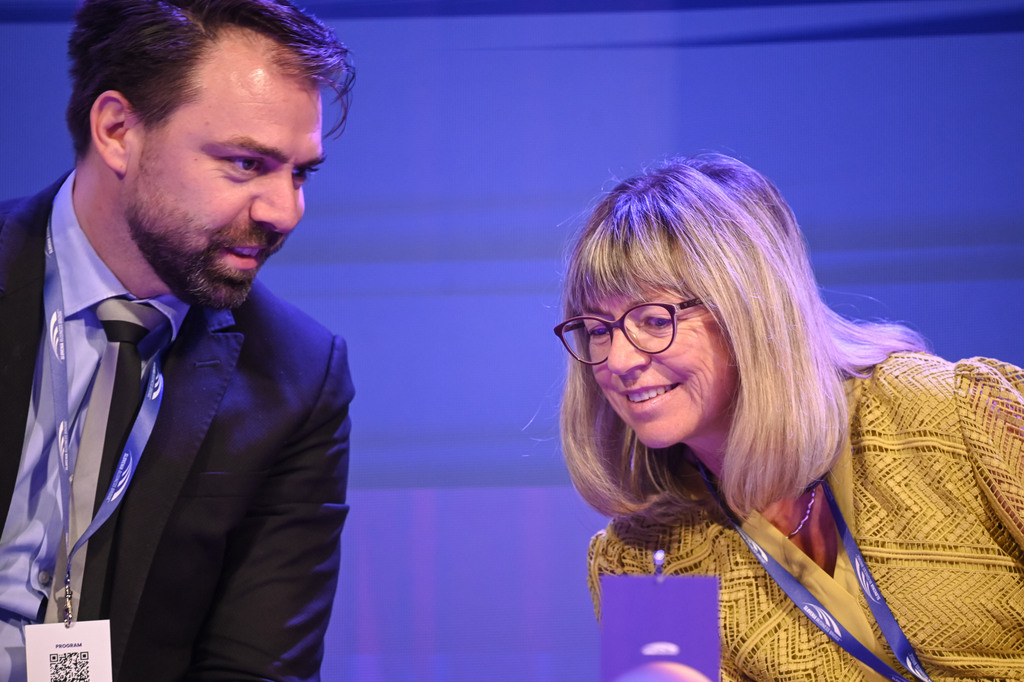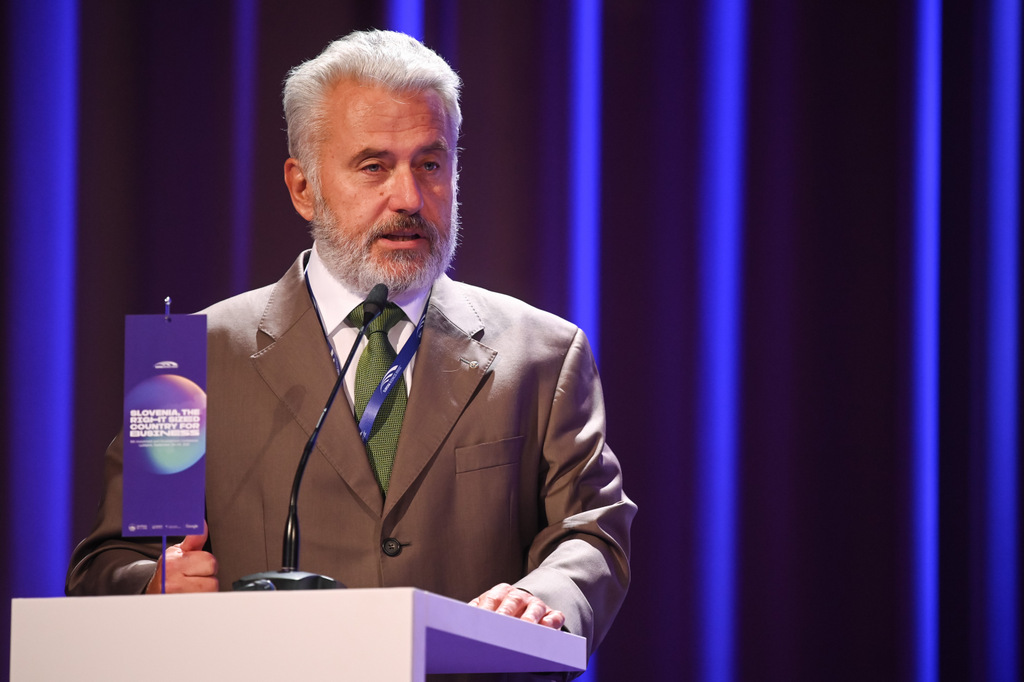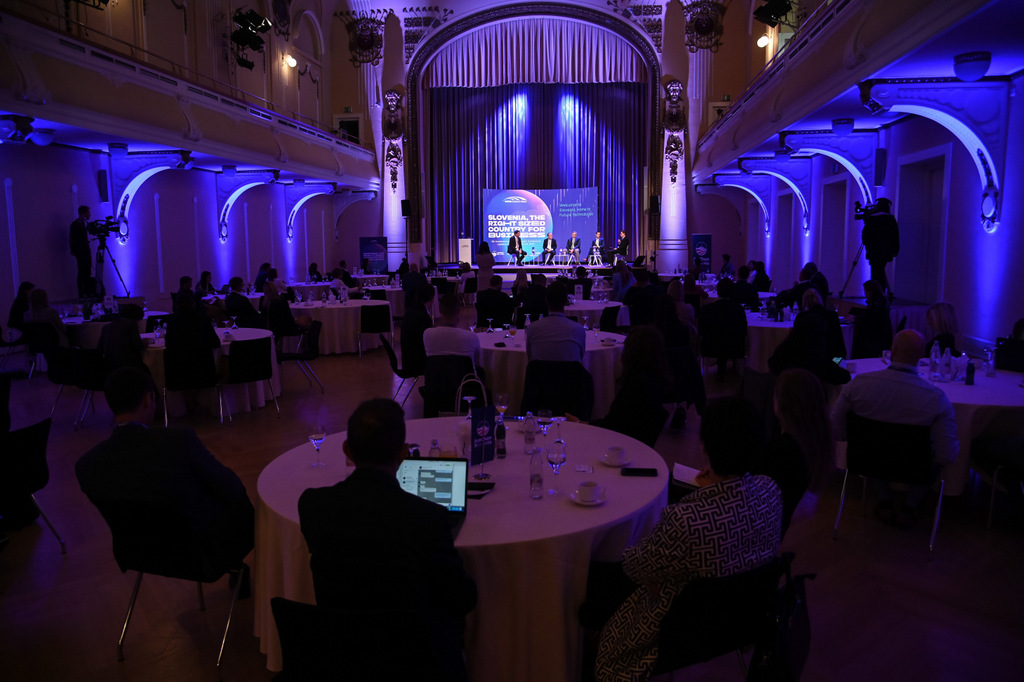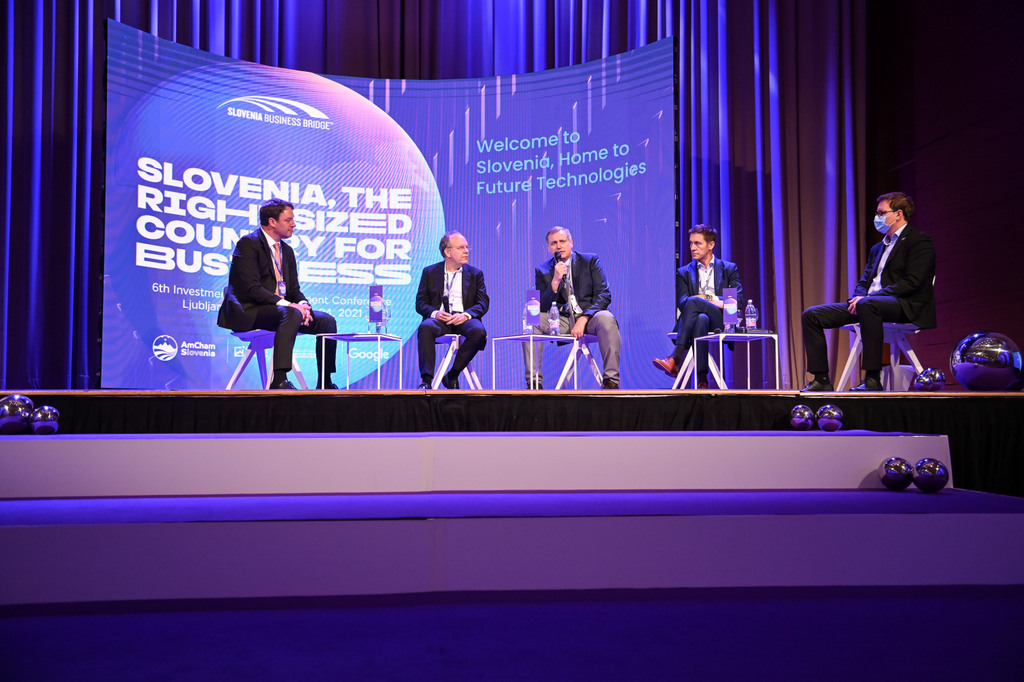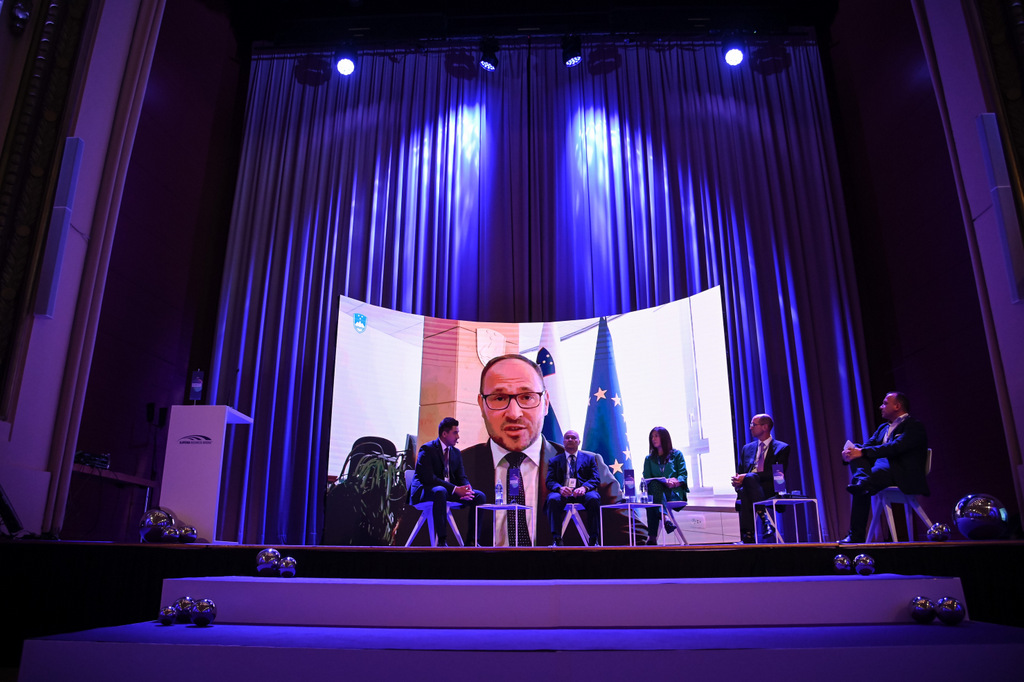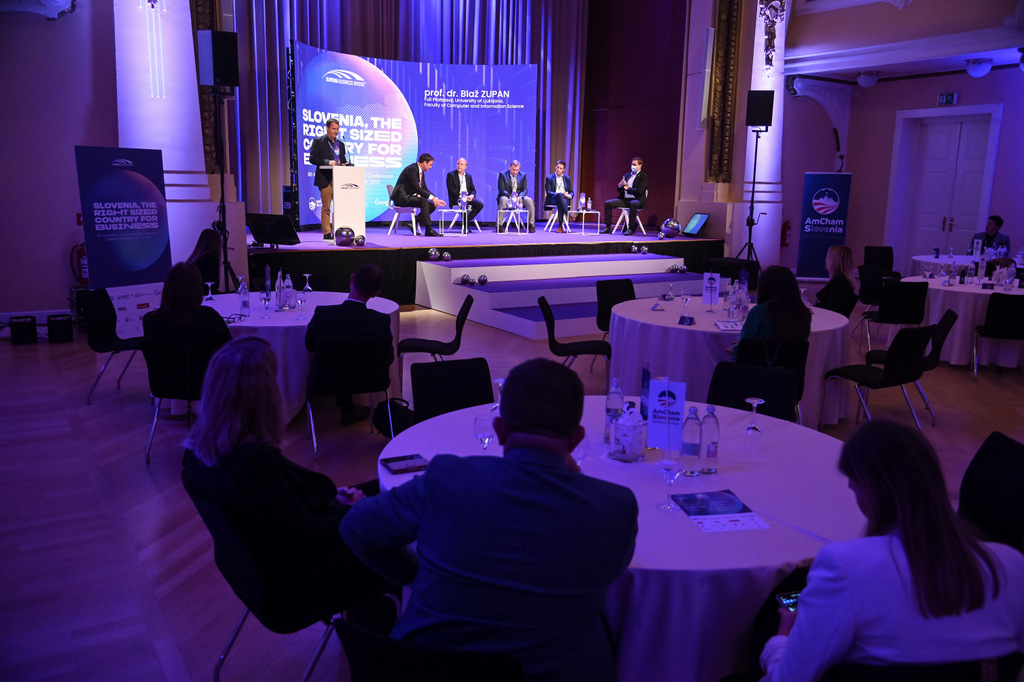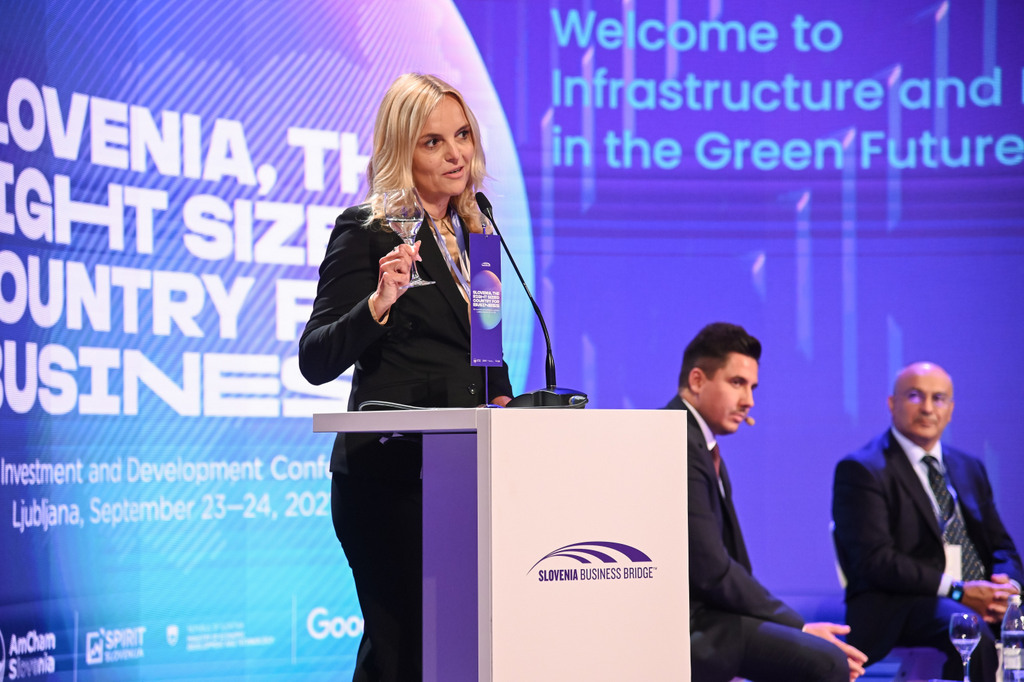The Slovenia Business Bridge Investment and Development conference discussed investment opportunities in Slovenia, where the need for partnership between the public and private was emphasised. Investments in human resources are also a must as they need to keep up with the constant development in technology and science.
The last day of the two-day investment and development conference, hosted by AmCham Slovenia, started with a panel debate of major Slovenian players in biomedicine and biotechnology, where Slovenia is an important niche player. Labena CEO Borut Čeh said it was good that Slovenia had a strong pharmaceutical industry. “When we talk with companies such as Johnson&Johnson or Pfizer, they know that the environment in Slovenia is at a high level and this opens many a door.”
Obtaining labour force remains a problem, with Cleangrad executive director Jernej Zupančič saying that the company even had to reject certain orders because it did not have enough human resources to honour them. Pharmaceutical companies closely cooperate with research institutes and faculties, from scholarships and incentives to attract people who emigrated to return home. “At the same time, we constantly strive to keep our employees,” said Lek CEO Robert Ljoljo.
According to National Institute of Biology director Maja Ravnikar, constant investments in development of human resources is needed in order to follow the exceptionally fast development in the field. “Currently, it is very important that science is able to communicate its work in the best possible manner. The progress is so huge that not even scientists from different fields understand each other.” This means that it is even more difficult for politicians and the public to understand what kind of breakthroughs science is capable of. “Science provides solutions, which has shown well in the current Covid-19 crisis,” she added.
The second panel discussed whether Slovenia is creative enough to achieve primacy in technological trends, with Public Administration Minister Boštjan Koritnik noting that that state would secure EUR 110 million for artificial intelligence alone in the next five years. Koritnik said that human resources also needed to be worked on, expressing regret that not enough consensus could be achieved to support the idea to introduce a cap on social security contributions in order for Slovenia to become more competitive in attracting young researchers and experts.
Erik Bertman from the Conscia group noted that they had acquired the IT company NIL in Slovenia two years ago, also because of knowing the culture in Slovenia and of good cooperation with stakeholders, from politics to investors, employees and companies. Boštjan Zalar, the director of the Jožef Stefan institute, said that Slovenian science needed to be more internationalised. Something needed to be done to attract researchers from abroad, he added, expressing hope that upcoming legislative changes would enable this. Head of Instrumentation Technologies Elvis Janežič said that although the company was one of the leading global companies producing equipment for particle accelerators, it remained in Solkan, as Slovenia was safe country to live in.

